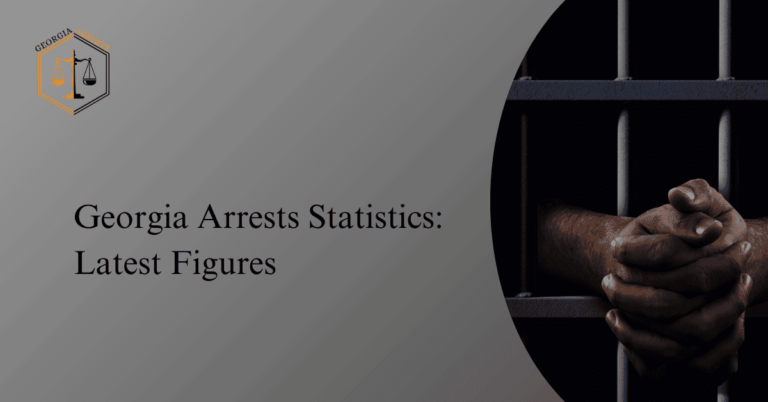Analyzing Georgia Arrests Data: Insights
Georgia Arrests Data provides valuable insights into the patterns and trends of arrests in the state. By delving into this data, we can uncover important information about crime rates, demographics, and law enforcement practices. Understanding these insights can help policymakers, researchers, and the public make informed decisions to improve safety and justice in Georgia.
Through a detailed analysis of Georgia Arrests Data, we can gain a deeper understanding of the factors influencing arrest rates and the effectiveness of law enforcement strategies. By examining this data closely, we can identify areas for improvement, address disparities, and work towards creating a more equitable and just criminal justice system in Georgia.
Understanding Patterns and Trends
When it comes to analyzing crime rates and demographics in Georgia, it is important to take into consideration various factors that contribute to the patterns and trends observed. By diving deep into the data, we can gain valuable insights into the interactions between different demographic groups and their likelihood of being involved in criminal activities.
Crime Rates and Demographics
One of the key aspects to consider when analyzing crime rates in Georgia is the demographic makeup of the population. Factors such as age, gender, race, and socioeconomic status play a significant role in determining the likelihood of individuals engaging in criminal behavior. By understanding these demographics, law enforcement agencies can better tailor their strategies to address specific needs and challenges within different communities.
Law Enforcement Practices
Law enforcement practices in Georgia vary widely across different jurisdictions, leading to disparities in how crimes are reported, investigated, and prosecuted. By examining the effectiveness of these practices, we can identify areas for improvement and work towards creating a more equitable justice system for all residents of the state.
Factors Influencing Arrest Rates
Arrest rates in Georgia are influenced by a multitude of factors, including the effectiveness of law enforcement strategies, disparities in access to resources, and underlying social issues. By analyzing these factors, we can gain a deeper understanding of why certain groups are more likely to be arrested than others and work towards addressing these disparities.
Effectiveness of Law Enforcement Strategies
Law enforcement strategies play a crucial role in determining arrest rates in Georgia. By evaluating the effectiveness of these strategies, we can identify what works and what doesn’t, allowing for more targeted and efficient approaches to crime prevention and control. By continuously assessing and adjusting these strategies, we can ensure that law enforcement practices are in line with the needs and expectations of the community.
Areas for Improvement
There are always areas for improvement when it comes to addressing arrest rates in Georgia. By identifying gaps in current practices, we can develop targeted interventions that aim to reduce disparities, improve community trust, and enhance overall public safety. By focusing on evidence-based practices and data-driven decision-making, we can work towards creating a more effective and equitable justice system for all residents.
Addressing Disparities
Disparities in arrest rates in Georgia can stem from a variety of factors, including racial bias, lack of access to resources, and systemic inequalities. By addressing these disparities head-on, we can work towards creating a more just and equitable system that treats all individuals fairly and with respect. By implementing policies and practices that promote transparency, accountability, and community engagement, we can build trust and foster positive relationships between law enforcement and the communities they serve.
Creating a More Equitable Justice System
Ultimately, the goal of analyzing Georgia arrest data and insights is to create a more equitable justice system that serves the needs of all residents. By focusing on data-driven decision-making, evidence-based practices, and community engagement, we can work towards reducing disparities, improving public safety, and promoting trust and collaboration between law enforcement and the communities they serve. By prioritizing fairness, transparency, and accountability, we can pave the way for a more just and inclusive society for all.
Frequently Asked Questions
Our Frequently Asked Questions section aims to provide you with detailed insights into Analyzing Georgia Arrests Data. Below, you will find answers to common queries related to this topic.
What is the significance of analyzing Georgia Arrests Data?
Analyzing Georgia Arrests Data is crucial for understanding trends in crime rates, demographics of individuals involved in criminal activities, and the effectiveness of law enforcement policies. By studying this data, researchers and policymakers can identify patterns and make informed decisions to improve public safety.
How can I access Georgia Arrests Data for analysis?
Georgia Arrests Data is typically available through the Georgia Bureau of Investigation’s website or other law enforcement agencies’ databases. Researchers can request access to this data for academic purposes or obtain it through public records requests.
What are some common trends observed in Georgia Arrests Data?
Common trends in Georgia Arrests Data include fluctuations in crime rates based on seasons, demographics of individuals arrested, types of offenses committed, and geographical distribution of arrests. Researchers often analyze these trends to identify areas for intervention and policy improvements.
How can I interpret Georgia Arrests Data effectively?
Interpreting Georgia Arrests Data requires a deep understanding of statistical analysis, crime patterns, and law enforcement practices. Researchers often use data visualization tools, such as charts and graphs, to identify correlations and trends within the dataset. It is essential to consider various factors that may influence arrest rates and outcomes.
What challenges are associated with analyzing Georgia Arrests Data?
Challenges in analyzing Georgia Arrests Data include data quality issues, privacy concerns, limited access to comprehensive datasets, and the complexity of criminal justice systems. Researchers must navigate these challenges to ensure the accuracy and validity of their analyses.
How can Georgia Arrests Data analysis contribute to crime prevention efforts?
By analyzing Georgia Arrests Data, researchers can identify high-risk areas, vulnerable populations, and recurring criminal activities. This information can guide law enforcement agencies, policymakers, and community organizations in developing targeted interventions, resources, and policies to prevent crime and enhance public safety.







